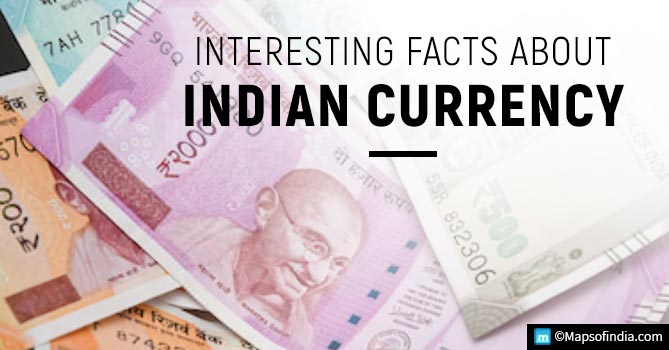Funds lying unclaimed in the different banks of the country add up to thousands of crores:
More than Rs 3,600 crores is stagnant in unacknowledged (unclaimed) accounts in banks, spread across the country. Most of these banks are in the rural areas, and the majority of the account type happens to be savings. As per the recent data, furnished by the Reserve Bank of India (RBI), more than 1.33 crore accounts of all type are in an inoperable status, and consequently, the commercial banks across the country have accumulated unclaimed funds of Rs 3,652.3 crore, statistics pertaining to December 2012. The State Bank of India and its associate financial institutions seem to be the largest holder of such unclaimed funds, amounting to Rs 714 crore followed by the Canara Bank with Rs 525.8 crore.
An account is generally categorized as inoperative, if no transaction takes place in the said account for a period of two years. Such an account is observed for a further period of eight years. If no attempt is made by the account holder during this period, to unlock the inoperative status of the account, then the account is transferred to the unclaimed deposit category. However, interest accrues on the account balance and bank service charges are debited from such inoperative account, during the eight years period. In case the account holder wants to resuscitate such inoperative account, he has to follow the procedures of the ‘know your customer,’ like furnishing address proof, identity proof etc., till the bank is doubtless about the status of the accountholder as genuine. The same procedures hold good, if an individual wants to realize such unclaimed amounts.
As per the statements of S Kaviarasan, officer, Canara Bank Head Office, Bangalore, “Most of our accounts with unclaimed status are in the rural branches. Many people open an account with a minimum balance of Rs 1,000 and don’t operate it”. As further added by Kaviarasan, while most of these accounts have balance of less than Rs 1,000, some account holder do respond to the bi – yearly reminders sent from the bank, but the majority does not. An interest amount of Rs 460 crores have accumulated in the said unclaimed accounts, as per the calculations till December, 2012. RBI had issued precise instructions to the bank on March 2012 for up-dation of the list of account holders, pertaining to such unclaimed deposits, and uploads the same information in the official website of the bank, following regular updates.
It is to be mentioned here that, not only savings accounts, current accounts, as well as fixed deposits, are also a part of these unclaimed amounts. As confirmed by a State Bank official of Chennai, “The fixed deposit accounts that are not renewed even 10 years after maturity have been designated as unclaimed”. Unclaimed deposits are not the problem of the government or state owned banks only, as evident from the fact that private banks like ICICI have Rs100.3 cores in unclaimed deposits followed by the Federal Bank (Rs 44.3 crore) as per the recent estimation. The Centre’s proposal of transferring such funds, to the ‘Depositor Education and Awareness Fund’ and their implementation in financial causes to be monitored by the RBI, was rejected vehemently.
Concerns of the RBI over lack of cooperation of the commercial banks to solve the unclaimed account problems:
While many public sector and commercial banks have cooperated with the RBI instructions of furnishing details for inoperative accounts, lying dormant for ten years or more, and publishing such information online, many have failed to do so. A reserved guess would be, at least an amount of Rs 100 crores is lying stagnated in the banks of Kerala alone. A notice was issued by RBI to all banks for reassessing the situation by 30th September, 2012.
State Bank of Travancore, one of the biggest public sectors Kerala based bank, informed, that the process of up-dation was underway and the large number of the dormant account is actually delaying the procedure, as confirmed by an official of the said bank. As commented by a senior official of the Union Bank, “The RBI directive has prompted Union Bank of India to contact many dormant account holders and about 40 – 50 percent of them have been reactivated”. He further added that the government happens to be the holder of certain accounts, and the said accounts maybe subject to prosecution.
General financial ignorance, demise of an account holder and the failure of the nominees/successors to inform the bank, in the event of the death of an account holder, and staking a legal claim for the account balance backed by relevant documents by the nominees/ successors, happen to be some of the major reasons, for the existence of such large number of inoperative accounts. The RBI had instructed the banks to encourage the dormant account holders or their nominees to reactivate such dormant accounts, through implementation of policies that protect and uphold the interests of the customers.
A rough estimate of some of the unclaimed accounts is as follows:
Federal Bank had more than 82,000 such unacknowledged accounts, with Rs 13.9 crore as unclaimed deposit, South Indian Bank had 1, 4600 such accounts with Rs 84 lakh, Dhanalaxmi Bank had 54,247 such accounts with Rs 1.19 crore as deposit, Catholic Syrian Bank had more than 1.79 lakh of such accounts with Rs 4.15 crore as deposit and the State Bank of Travancore had over 63000 of such accounts, with Rs 8.16 crore as unclaimed deposit. Of the Kerala based commercial banks, Federal Bank and the South Indian Bank had complied fully, with the RBI instructions regarding dormant accounts.
Some other reasons behind non – operated accounts:
It has been observed that a salaried person on an average has six to seven savings accounts, a majority of which remains non – operable. Besides, every time an individual changes job, the company opens a salary account which after quitting the said job is still tagged with the individual. As per a Business Standard report, “…But it could come back to haunt you. For instance, when you are filing income tax returns, the assessing officer may seek data of all your accounts, or as the Cobrapost revelations show, it might even be misused to launder black money.”
As per the RBI mandates, an account not witnessing any transaction for a year is designated inactive and the same happening for two years the said account is designated as dormant. Prudence lies in closing unused accounts; as such accounts can be misappropriated for illegal purposes. An individual can easily invest the account balance in a higher interest yielding financial apparatus. Closing an account is a simple matter of submitting an application by the account holder. However, if the account happens to be a joint account, or one with no nominees, then the issue is complicated. It may involve a lot of paperwork and tedious visits to the bank. Suresh Sadagopan of Ladder 7 Financial Advisory Service advises that, “Three to four bank accounts per family should be manageable. Anything above that should be kept only if it is unavoidable and very important”.
Conclusion – the Government’s perspective of the unclaimed deposits:
As confirmed by two Government Officials (including one from the Finance Ministry), the banking sector of the Finance Ministry is mulling over introducing amendments in the banking laws for realizing the funds, lying for more than ten years in the unclaimed category of the banks, spread over the country. Claiming anonymity, one of the officials commented, “The central pool of the non – operative account could be used for education and generating awareness of the banking system”. Claiming anonymity (since the issue is under the considerations of both the RBI and the Finance Ministry), the Chairman of a South India based public sector bank commented, “The amount has been accumulated over a very long time. Even then, as compared with the total deposits of the banking system, it is somewhat insignificant”. While RBI is in the favor of tracing the holders of the unclaimed accounts, the Finance Ministry is after the same funds for implementing them ‘to improve banking awareness in the country’. They are even advocating an amendment in the banking regulations to suit their purposes. Let us see who emerges as a profiteer from this situation, the RBI or the Finance Ministry?
Read Also:
What is Payment Bank and How Does it Work
RBI’s Battle Against Inflation – Bonds to Check Liquidity
RBI reduces free ATM withdrawals in metro cities
RBI’s Rate Cut: Beginning of the End of Uncertainty in Investment and Growth
New Financial Reforms from new Governor of RBI
Modi’s Vision for Banking Industry
Investment Risks to Economy – Caution Is the Watchword for RBI
Differentiated Banking Licenses – India’s Next Milestone?
Swap your old currency notes with new one




